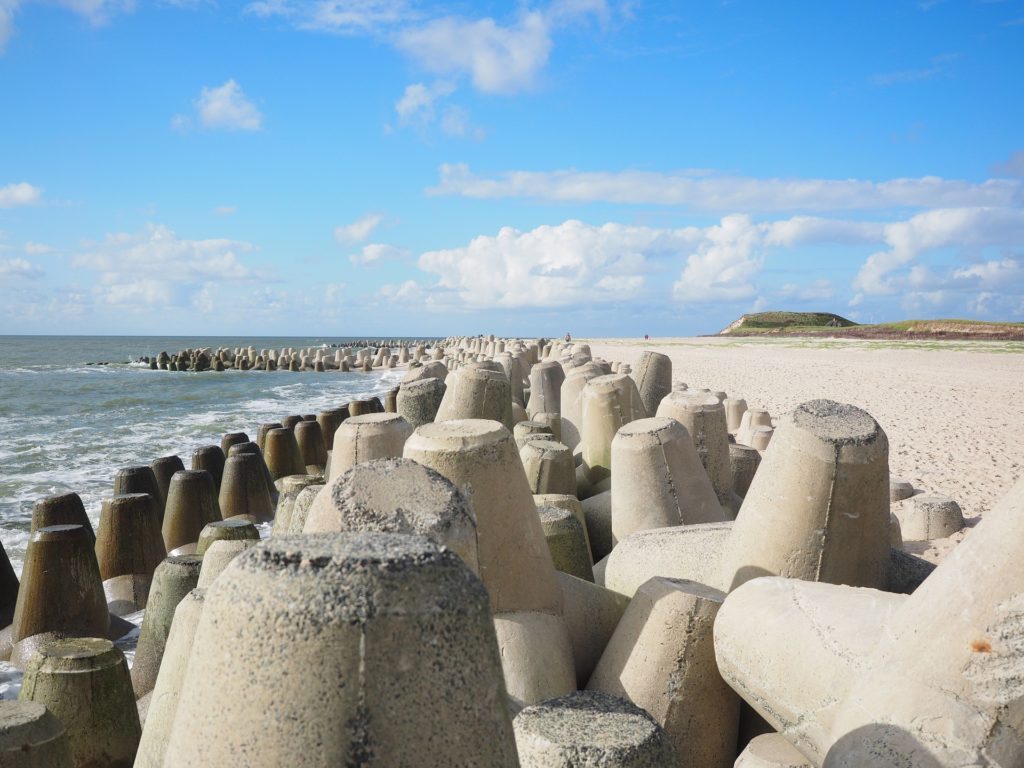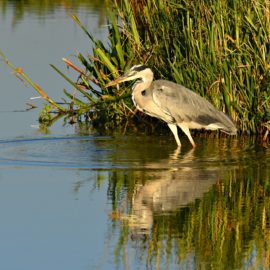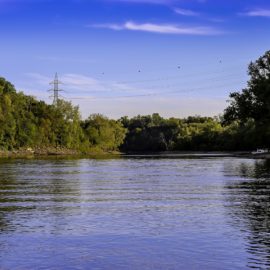
Speaking to a congressional hearing in Delaware, the Governor spoke on the coastal restoration projects the state is undertaking.
Speaking Wednesday before a congressional panel, Gov. John Bel Edwards praised a bill that could pave the way for coastal restoration and storm surge protection projects in Louisiana and other states. Edwards spoke at a U.S. Senate field hearing in Delaware held to collect comments on the proposed Shoreline Health Oversight, Restoration, Resilience and Enhancement Act, known as the SHORRE Act. That legislation includes language that would loosen the rules the Army Corps of Engineers follows to determine if a project should be approved and funded. It also includes provisions that would authorize a number of major Louisiana projects, clearing the way for each to eventually be funded by Congress. Edwards and others at the hearing said the Corps’ formula for approving projects should give more weight to the benefits a project provides to disadvantaged communities, even though the value of homes and businesses in those areas might not be enough to equal a project’s cost. Other issues, like the value of a project to an area’s recreation, such as fishing, also should be given greater weight, Edwards said.
nola.com
This hearing was to support legislation that is currently in the senate with Sen Cassidy as one of the authors and the House with Rep Graves. Where are the ohers?
Identical versions of the SHORRE legislation were introduced in the Senate by Sens. Tom Carper, D-Del., and Bill Cassidy, R-La., and in the House by Reps. Lisa Blunt Rochester, D.-Del, and Garret Graves, R-Baton Rouge, in early February. The bill includes authorizations for the following projects: the proposed $1.6 billion, 30.6-mile Upper Barataria hurricane levee system that would reduce storm surge heights for portions of seven parishes west of the existing West Bank and Vicinity levee system and a $1.9 billion pair of projects that would keep the west bank and east bank New Orleans area hurricane levees elevated to protect from storm surges caused by a hurricane with a 1% chance of occurring in any year, a so-called 100-year storm, through 2078. Congress would still have to appropriate money for those construction projects.
The request is to make sure that it would be easier to transfer funds for similar projects.
The legislation also would loosen restrictions that might require the Corps to ignore Louisiana’s request to use a portion of construction costs for a proposed Maurepas freshwater diversion as required mitigation for construction of the West Shore Lake Pontchartrain hurricane levee. The legislation might also empower the Corps to approve Louisiana’s request to use a portion of money reserved for one project to mitigate the construction impacts of another. Though existing rules might bar such a move, the state wants to use some money intended for a proposed Maurepas Swamp freshwater diversion to fund mitigation efforts for a separate West Shore Lake Pontchartrain hurricane levee. That levee would increase hurricane storm surge protection for parts of St. John the Baptist and St. James parishes that flooded after hurricanes Isaac in 2012 and Ida in 2021.
Additionally the bill would let the Corps to manage the Mississippi so that the proposed diversions work as planned.
The SHORRE bill also would require the Corps to work with the state in an ongoing comprehensive management study of the flow of water in the lower Mississippi River, which could support the state’s efforts to get its Mid-Barataria and Mid-Breton Sediment Diversion projects approved. Edwards said the research could also help move forward a sediment diversion project proposed for Ama in St. Charles Parish and a freshwater diversion proposed for Union in St. James Parish. Edwards said the bill would also loosen Corps rules that require Louisiana to buy the land it uses for restoration projects. Instead, the state wants to sign agreements with present landowners to allow such projects to be built. “Nearly three quarters of Louisiana’s coastal lands are held in private ownership,” Edwards said. “Louisiana cannot solve its coastal land loss crisis without engaging with willing landowners to find restoration solutions that work for their goals.” If approved, the legislation would become part of the 2022 version of the Water Resources Development Act, a much-broader bill that also authorizes new water, restoration and levee projects overseen by the Corps. That bill is expected to be considered by Congress later this year.
Reasonable requests to make sure that the projects get started.



